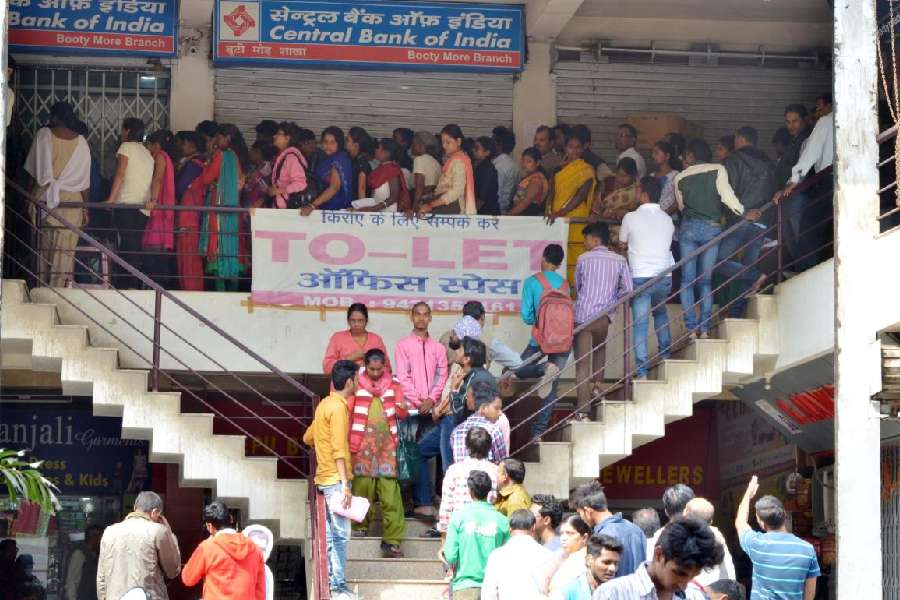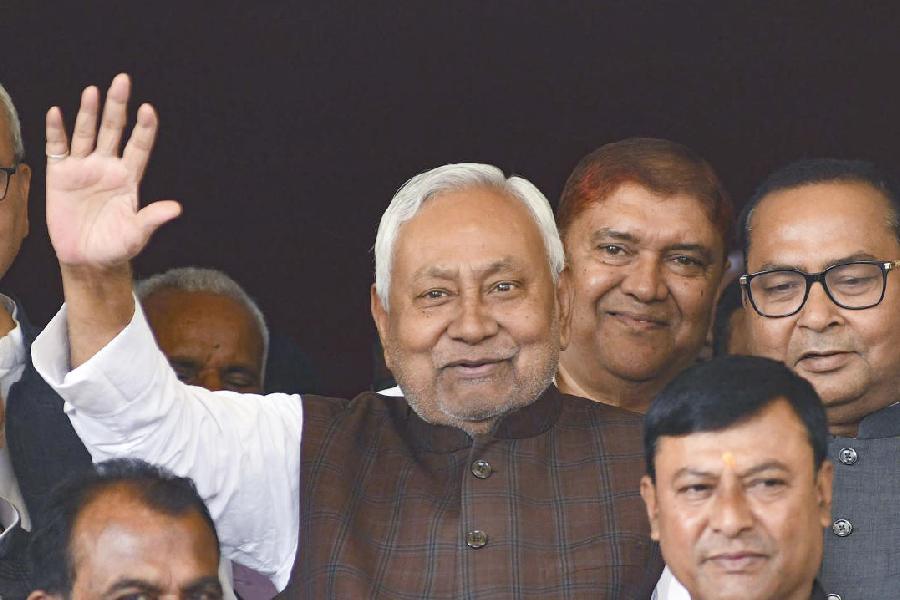BJP president J.P. Nadda on Monday marked 11 years of the Narendra Modi government by listing demonetisation as one of its many “bold decisions”, stressing that long queues outside banks showed people’s “trust” in Modi’s leadership.
Nadda swept aside doubts over the stability of the current government, which needs the support of allies, and claimed that “the NDA government will complete this term and will also complete the next term”.
Modi was sworn in as Prime Minister for the third time on June 9 last year.
Addressing the media at the BJP headquarters, Nadda said the work done by the Modi government in the last 11 years should be “written in golden words, golden letters”, terming the achievements as “akalpaniya aur adwitiya” (unimaginable and unprecedented).
He said Modi had changed the “political culture” of the country, and went on to list demonetisation, abrogation of Article 370, abolition of instant triple talaq, enactment of the waqf law and the Citizenship Amendment Act as some of the Prime Minister’s “bold decisions”.
Nadda did not explain how the country had benefited from demonetisation, but used it to exemplify people’s trust in Modi’s leadership. He said Modi had given “special emphasis” on “people’s participation” in the government’s decisions, and the handling of the Covid-19 pandemic and demonetisation exhibited this.
“If I talk about demonetisation, I remember how our political opponents had tried to instigate the public to take advantage. You may have forgotten, but I do not forget,” Nadda said.
“But the common man of India stood in front of the bank for hours and supported the demonetisation decision of the Modi government. When there is trust in the leadership, the public supports it. This we have to understand,” he added.
On November 8, 2016, Modi had in one stroke scrapped ₹500 and ₹1,000 notes, causing considerable economic hardships for the common man and small and medium enterprises. At least 33 deaths were reported across the country that could be directly or indirectly linked to the sudden move. However, the Modi government claimed the “disruption” was necessary to fight black money, weed out fake notes and create a cashless economy by pushing digital transactions.
None of the stated objectives of the government, however, were fulfilled. According to RBI data, more than 99 per cent of the scrapped notes came back into the system, and the circulation of counterfeit notes and cash increased after the demonetisation.
The Modi government has since then rarely cited the demonetisation as one of its big-bang achievements.
Nadda also hailed Modi for his handling of the pandemic, brushing aside the latest official data that has revealed a significant undercount of Covid deaths in India
during 2021.
“In battling the pandemic, no country responded like India under the leadership of Modi,” Nadda said.
On the stability of the Modi government, Nadda said the BJP-led NDA would return to power again in 2029.










